5 best houseplants to gift over the holidays
Indoor plants that keep on giving
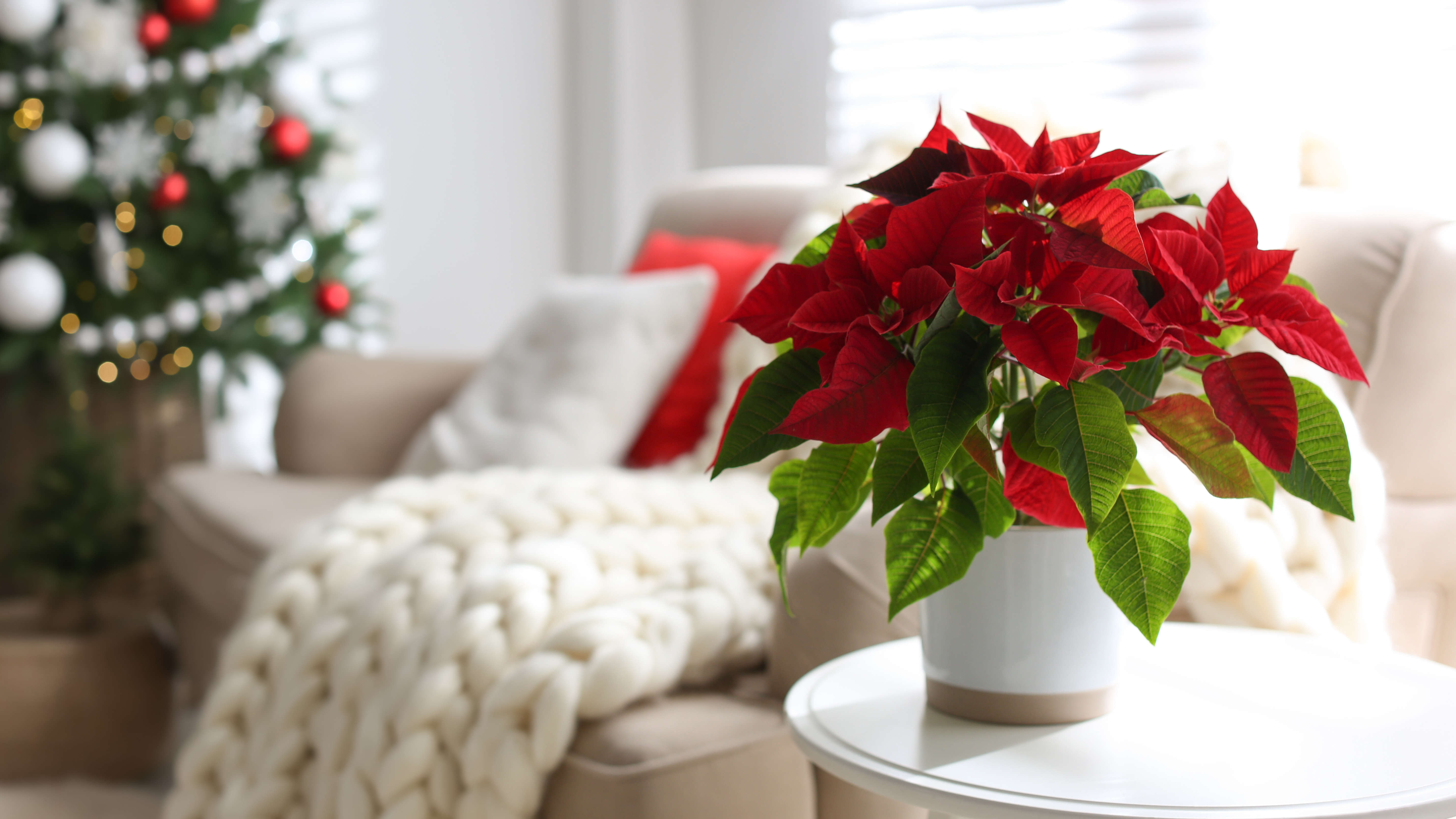
There's always one person who is tricky to buy for over the holiday season. Perhaps you’re unsure of their taste, or they have everything they need. A houseplant can be the perfect gift for anyone when you're out of ideas.
Indoor plants can help brighten your home, especially when it’s too cold to venture outside into your yard. And they also have the benefit of lasting longer than cut flowers – they are a gift that keeps on giving.
We’ve selected the top 5 indoor plants to gift over the holiday season, so you never need to be stuck for an idea again. You might also be interested in 5 alternative houseplants that can be as an alternative to a standard Christmas tree.
1. Poinsettia
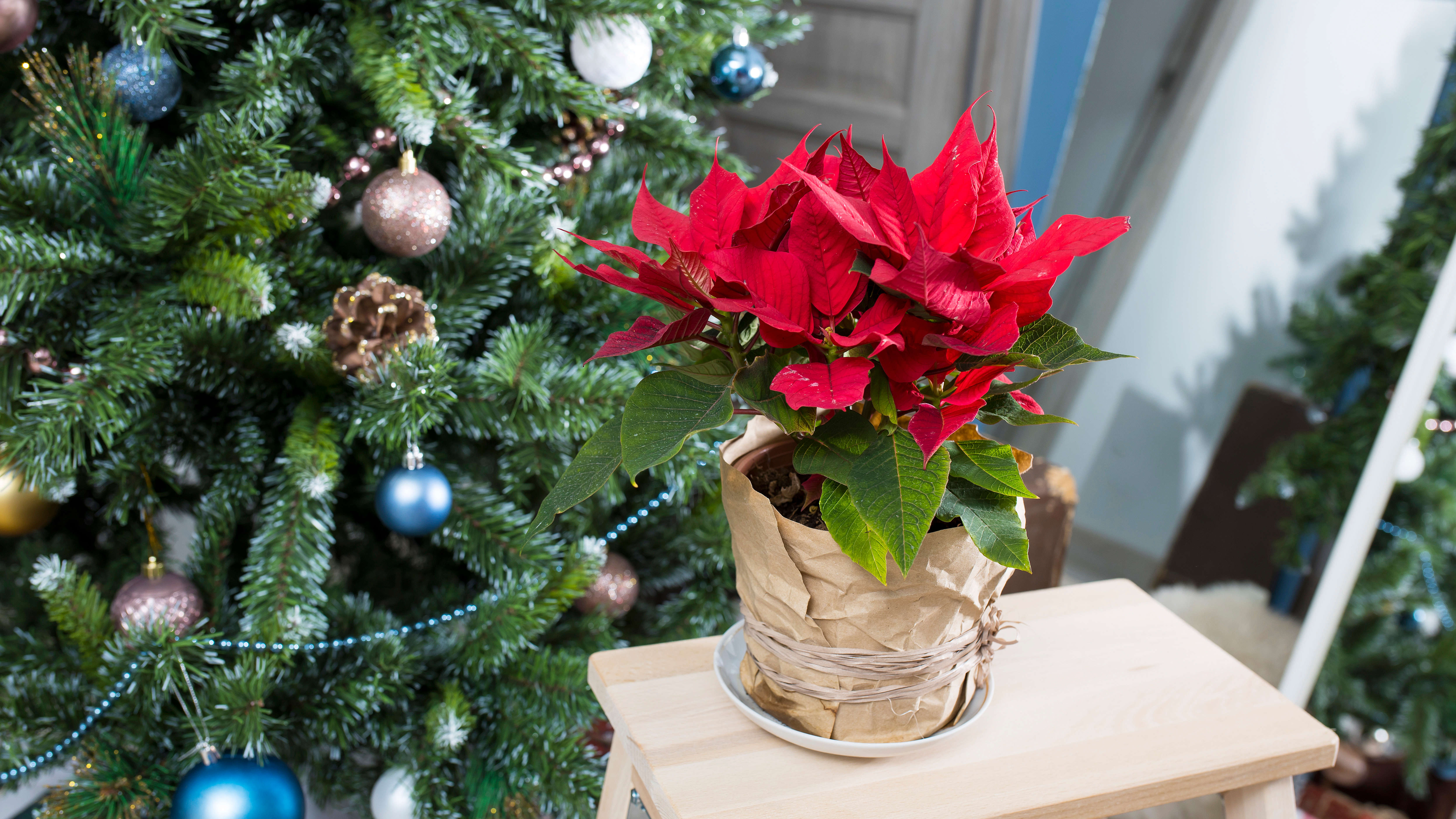
Poinsettias make it to the top of Santa’s gifting list over the holiday season. According to the University of Florida’s Institute of Food Agricultural Sciences, they are the most popular potted plant in the U.S., with 70 million plants sold within the six-week holiday period.
Not just traditional Rudolph red, poinsettias now come in a whole array of colors. White, pink, purple and even blue – take your pick. You’ll also find some that are streaked and marbled.
Native to Mexico, poinsettias used to be called Flores de Noche Buena (Flowers of the Holy Night) due to their resemblance to the Star of Bethlehem.
What we commonly refer to as the ‘flowers’ are actually ‘bracts’. Bracts are specialized leaves which are normally small, but in the case of the poinsettia they are large and petal-like. The actual flower is in the center and resembles tiny yellow beads.
Sign up to get the BEST of Tom's Guide direct to your inbox.
Get instant access to breaking news, the hottest reviews, great deals and helpful tips.
When choosing a poinsettia, look for one with dark green foliage, with no sign of wilting or yellowing. Poinsettias will do well in bright, indirect light, away from drafts and heating vents. Allow the soil to dry moderately between waterings, but don’t let the roots become sodden. Check that the pot has drainage holes to allow excess water to escape.
Opt for a different seasonal houseplant if the recipient has dogs or cats that like to nibble on plant leaves, as they are slightly toxic to four-legged friends. (Here are 10 other houseplants that are toxic to cats and dogs.)
2. Christmas cactus
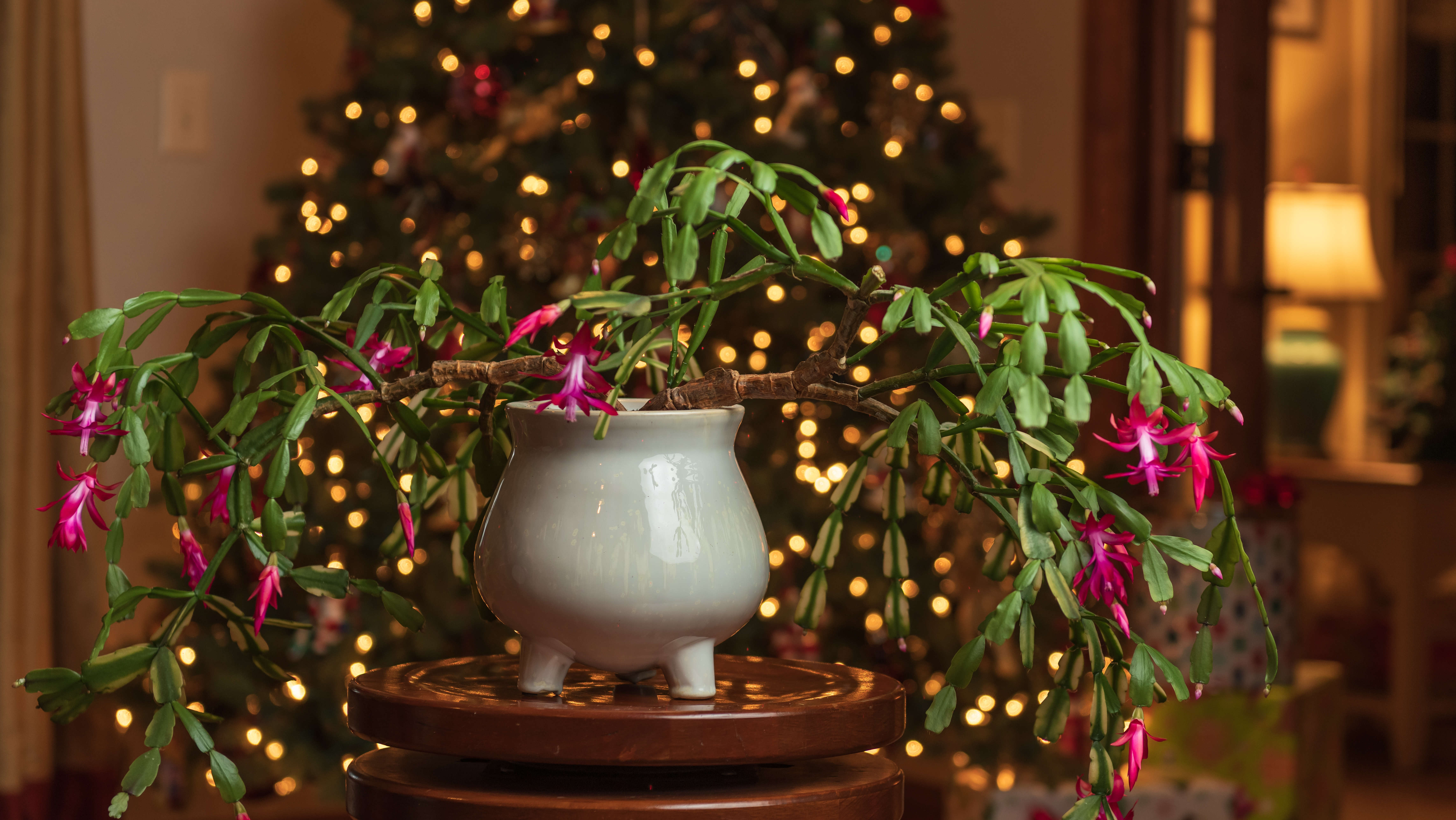
Christmas cactus is a traditional favorite at Christmas as it’s the time when the flowers bloom. The tubular, almost bell-like blossoms come in red, pink and white. The stems of the plant form fleshy, segmented leaves with serrated edges.
Christmas cactus is not like regular cacti from hot, dry deserts. It’s native to tropical rainforests where they grow on tree branches and enjoy high humidity, dappled sunlight and warmth. For this reason they will need more regular watering than the standard type, although it’s best to leave the soil to dry out between watering.
So, how do you care for a Christmas cactus? The Spruce recommends that once the buds are set, it requires a cool nighttime temperature between 55°F and 65°F and at least 13 hours of darkness to flower. It’s also best to keep it away from sudden changes in temperature, so avoid placing it near drafty windows or heating vents. Apart from enjoying frequent water, as mentioned above, the humidity-loving Christmas cactus will also benefit from a quick mist with water.
Although the name suggests just one Christmas cactus, there are three. Easter cactus (Rhipsalidopsis gaertneri), Thanksgiving cactus (Schlumbergera truncata) and Christmas cactus (Schlumberger bridgesii) – so how do you tell them apart?
Christmas cactus is the much-loved plant I remember my grandparents having, which flowers in late November through to early February. When the blooms open, they hang down and resemble fuchsia blooms. The plant is also easy to propagate. Simply pinch off a ‘Y’ piece from the stem and pot into well-drained soil.
Thanksgiving cactus blooms slightly earlier in mid-November and late December. Sometimes it’s referred to as the ‘crab cactus’ as its leaf segments are square-shaped with pincer-like hooks on the end. Meanwhile, the flowers of the Easter cactus are flatter than the Christmas cactus, are star-shaped and tend to point upwards.
The Christmas cactus is also harmless to pets, to it's a safe bet if your recipient is an animal lover. Here are 5 tips to keep your Christmas cactus flowering year after year.
3. Amaryllis
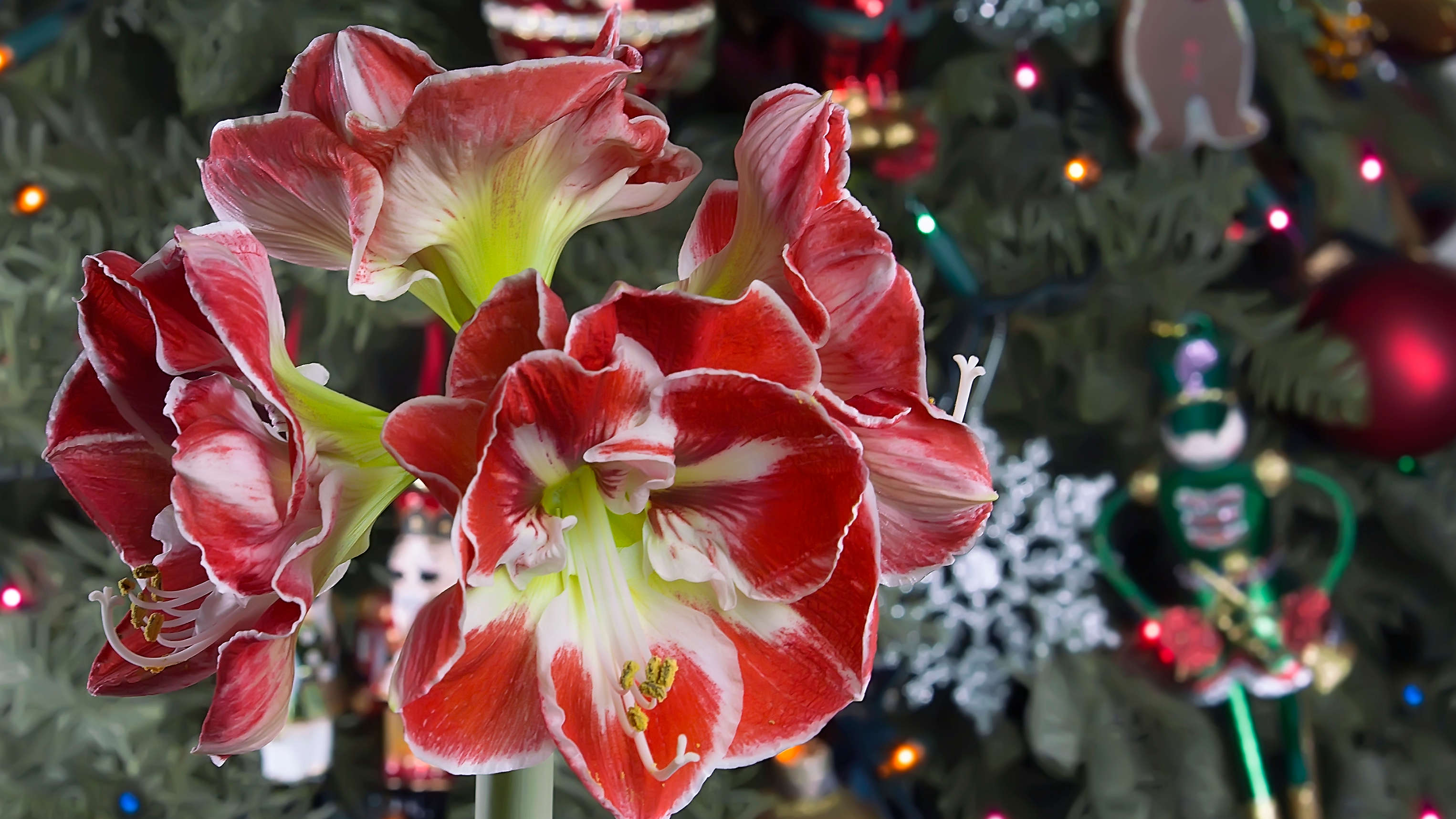
The Amaryllis is a real show-stopper of a houseplant. There’s nothing delicate about this popular Christmas plant that certainly packs a punch in petal power. Apart from the bold red-blood variety that’s perfect for Christmas gifting, it also comes with white, orange, pink, purple and yellow flowers, with a few variegated versions in between.
This lush tropical bloom is grown from a bulb plant where size does mean everything. The bigger the bulb, the bigger the flower. And once the plant blooms you can expect the flower to stay in top condition for about three weeks.
Interflora suggests positioning the plant in a sunny spot, although avoiding direct sunlight, and turning the pot 180° a day to encourage the plant to grow straight and true. The plant will only need water every two weeks, but check the soil is touch dry before giving it a top up.
This plant is best avoided if the recipient has pets, as it can cause harm if ingested.
4. Cyclamen
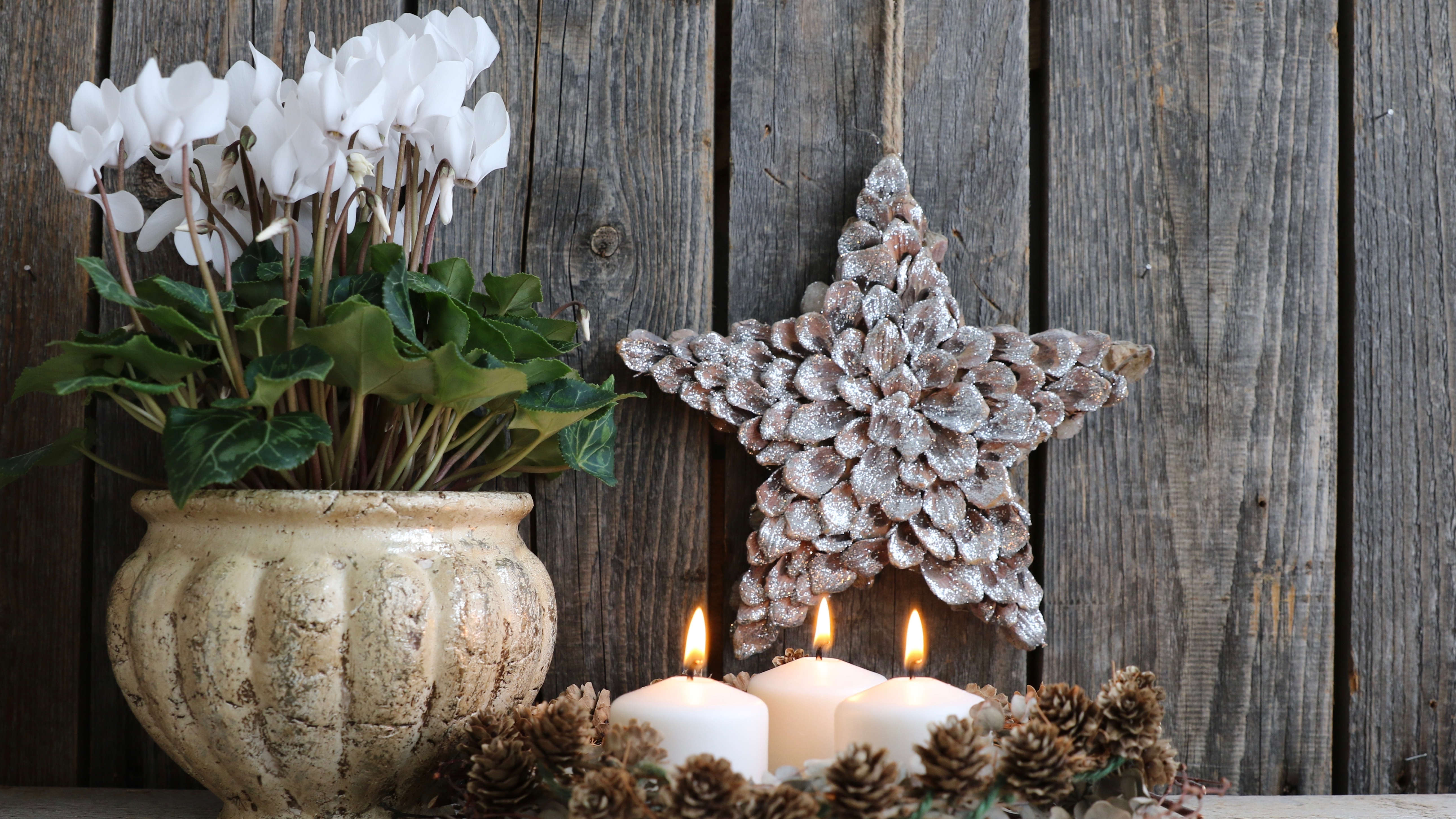
This delicate houseplant takes me back to one of my early weekend jobs at a florist. Cyclamens, with their pretty butterfly-shaped petals and variegated leaves, were popular for gifting over the holiday season.
I remember wrapping white, red, and pink cyclamens in cellophane and attaching coordinated handmade ribbons, all ready to burst into bloom over Christmas.
Choose a cyclamen with plenty of buds and healthy, succulent leaves. To thrive, they prefer indirect light, good airflow, moderate humidity and moist soil. Cyclamens also like it on the cool side, with a daytime temperature of 60° to 65°F and 50°F to 55°F in the evening. These temperature ranges will help to keep it blooming.
Cyclamen are best watered from below to prevent the plant’s tubas from rotting. Place a saucer underneath the pot and allow the plant to sit for 5 to 10 minutes, before allowing it to drain.
To encourage new flowers, remove withered blooms from the base of each stem. New flowers will then emerge from buds hidden beneath the foliage.
Cyclamens are not tolerated by pets and can cause serious problems if large amounts are consumed.
5. Paper white narcissus
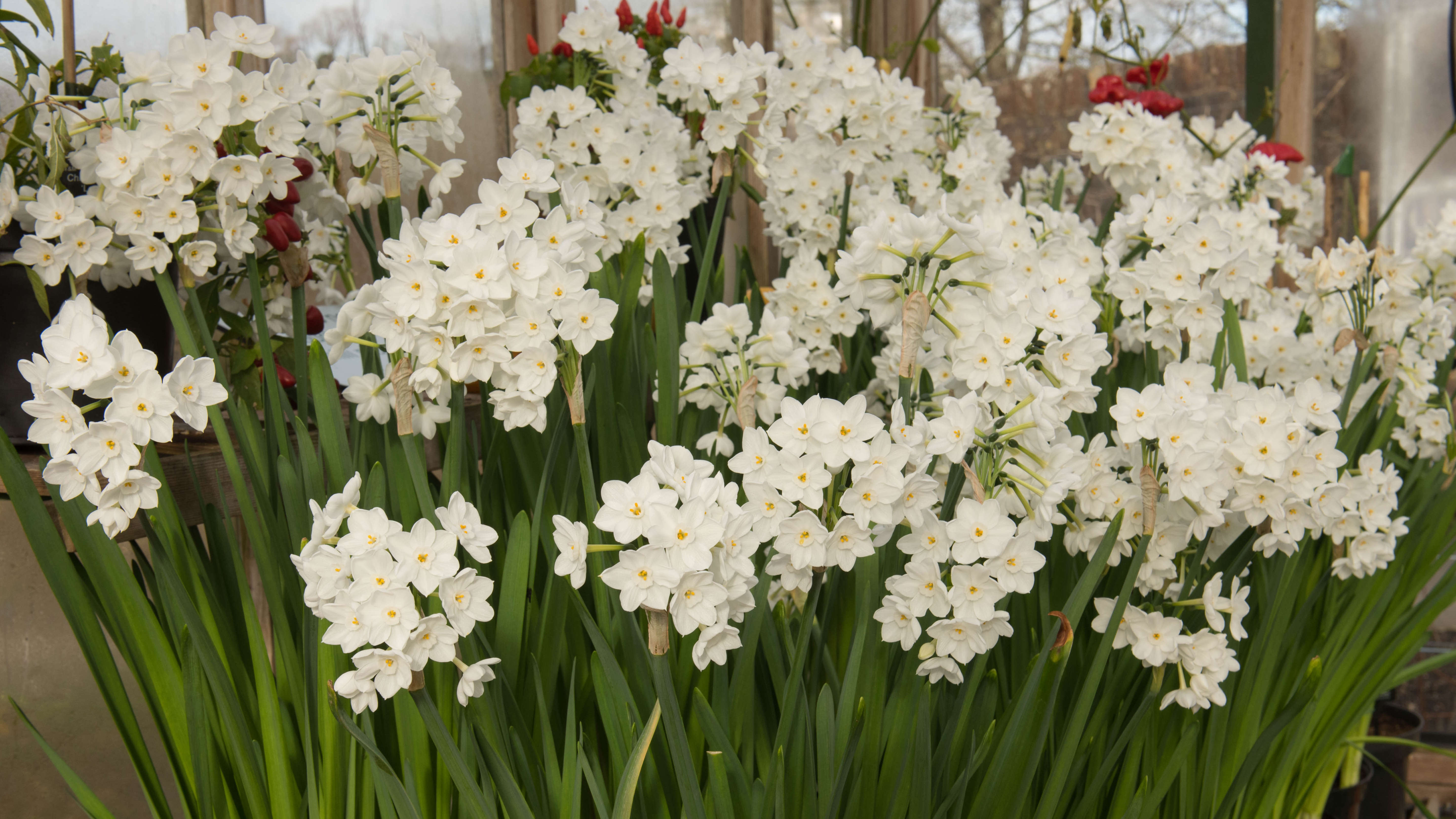
If you’re looking for an indoor plant that smells fragrant, paper white narcissus is a good choice. The paperwhite flowers burst into snow-white clusters, making it a classic plant to give at Christmas.
Paperwhites are grown from bulbs and are often sold in kits at Christmas, making them easy to wrap. Receiving a kit, rather than a pre-potted plant, also adds an element of excitement as you can watch the bulb come to life.
Try this Quaint Paperwhite Growing Kit, including 5 bulbs, a pot and saucer, with growing medium ($25, Amazon).
The bulbs begin to grow as soon as they are planted, with flowers appearing in 4-6 weeks. Each stem will produce several blooms lasting for about 3-4 weeks if kept cool, with a temperature no higher than 65°F.
Easy to Grow Bulbs recommends Ziva, Nir Ariel paperwhites for their fragrance, adding that Ariel has the benefit of a strong stem that is less likely to flop.
Again, this is another plant to avoid if the owner has pets, as it can cause harm if ingested.
Over the last couple of years, the popularity of houseplants has increased as we recognize the joy they can bring to our environment and general well-being. Therefore, indoor plants make a perfect gift to give at Christmas, one that can fill homes with colour, fragrance and nature for months to come.
More from Tom's Guide
- Are the holiday preparations keeping you awake at night? 5 plants that can help you sleep at night
- Try these 7 best low maintenance plants for easy care
- Discover 7 plants that can survive without sunlight

Camilla Sharman has worked in publishing and marketing for over 30 years and has covered a wide range of sectors within the business and consumer industries both as a feature, content, and freelance writer.
As a business journalist, Camilla has researched articles for many different sectors from the jewellery industry to finance and tech, charities, and the arts. Whatever she’s covered, she enjoys delving deep and learning the ins and out of different topics, then conveying her research within engaging content that informs the reader. In her spare time, when she’s not in her kitchen experimenting with a new recipe, you’ll find her keeping fit at the gym. In the pool, stretching at a yoga class, or on a spin bike, exercise is her escape time. She also loves the great outdoors and if she’s not pottering about in her garden, she’ll be jumping on her bike for a gentle cycle ride.
